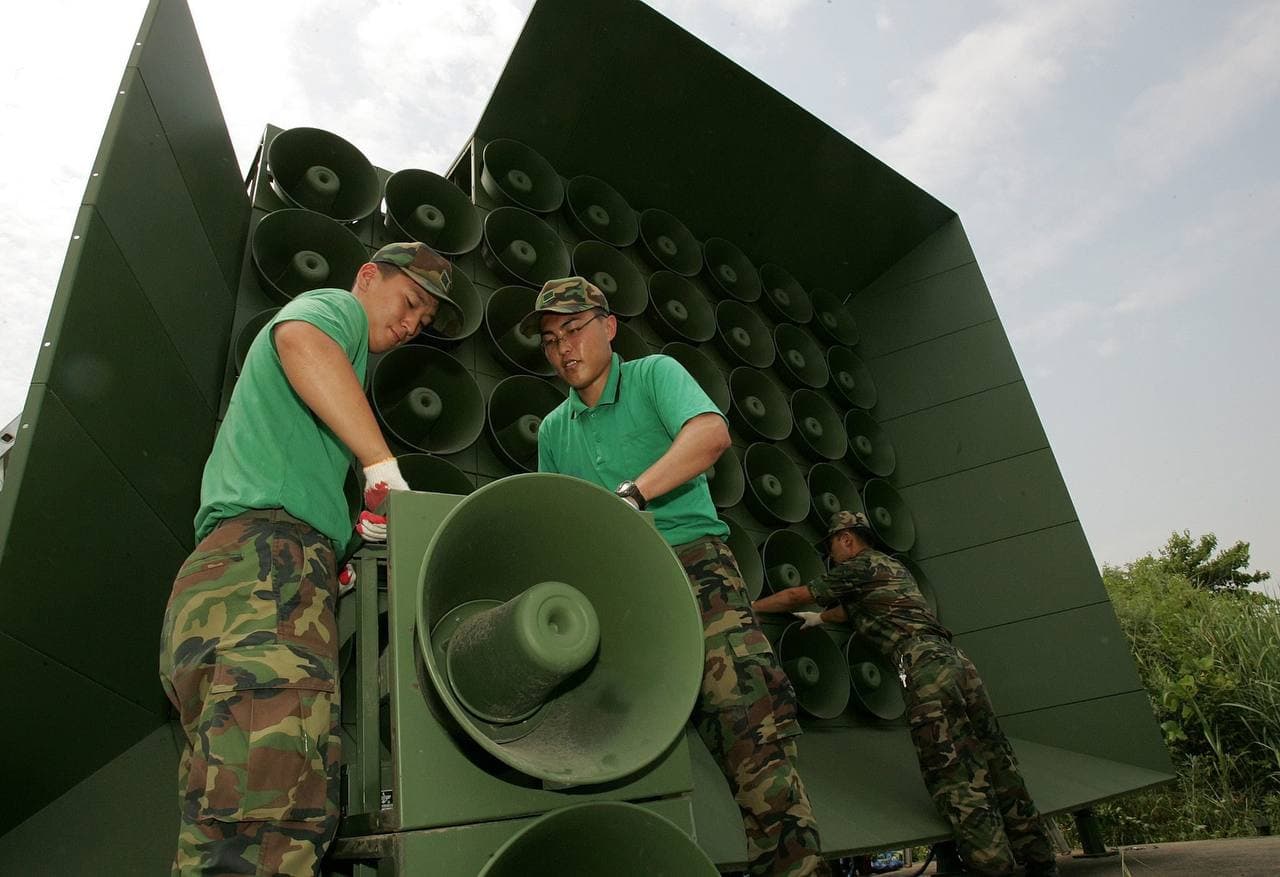South Korea Halts DMZ Loudspeaker Broadcasts, Aiming to Ease Tensions with North
In a significant move aimed at reducing inter-Korean tensions, South Korea has commenced the dismantling of loudspeaker systems previously installed near the Demilitarized Zone (DMZ) that borders North Korea. This decision follows an instruction from President Lee Jae Myung to cease broadcasts that have been a staple in the region"s psychological warfare for decades. The change comes amidst efforts to foster a more peaceful dialogue between the two Koreas, who have long been in a state of military and ideological standoff.
Background & Context
The loudspeakers were originally set up as a countermeasure against North Korea"s own propaganda efforts, which included the use of airborne leaflets and audio broadcasts aimed at influencing the South Korean populace. These systems have been in place since the Korean War, serving as tools of psychological warfare. They broadcast a variety of content, from news and music to information critical of the North Korean regime, aiming to undermine its authority and sway public opinion.
Historically, these broadcasts have escalated tensions between the two nations, often provoking retaliatory measures from the North. The decision to remove them marks a notable shift in South Korea"s approach to its northern neighbor, reflecting a desire for de-escalation and a potential reopening of dialogue. This move aligns with President Lee"s broader strategy, which includes diplomatic overtures and a focus on stabilizing the region.
Key Developments
President Lee Jae Myung"s directive to halt the broadcasts was issued several weeks ago as part of a comprehensive initiative to reduce friction with North Korea. The loudspeakers have long been a point of contention, with the North frequently condemning them as acts of aggression. By dismantling these systems, the South hopes to signal a commitment to peace and stability in the region.
Government officials in South Korea have expressed optimism that this action will contribute to a more conducive environment for diplomatic engagement. "We are taking steps to create an atmosphere of trust and dialogue," stated a senior official in the Ministry of Defense. The cessation of broadcasts is seen as a preliminary step that could pave the way for future negotiations, potentially leading to a thaw in relations that have been notably tense in recent years.
Broader Impact
The impact of halting the DMZ loudspeaker broadcasts extends beyond mere propaganda. Analysts suggest that this move could influence domestic and international perceptions of South Korea"s stance towards its northern counterpart. "It reflects a significant shift in South Korea"s foreign policy, one that prioritizes engagement over confrontation," noted Dr. Min Joon, a political analyst specializing in inter-Korean relations.
Moreover, the removal of these loudspeakers could have implications for North Korea"s domestic propaganda efforts. With less external pressure, there may be shifts in how the North communicates with its citizens, particularly regarding perceptions of the South. This could, in turn, affect the regime"s stability, depending on how the populace responds to the changing narrative.
What"s Next
As South Korea proceeds with the dismantling of the loudspeakers, the focus will likely shift to other areas of inter-Korean relations. Future developments may include renewed discussions on denuclearization and humanitarian issues, which have been stalled for years. Experts predict that if South Korea continues to adopt a conciliatory approach, North Korea may reciprocate, leading to a potential resumption of diplomatic talks.
In the coming months, stakeholders in both countries will be watching closely to see if this gesture of goodwill translates into tangible progress. The international community, particularly the United States and China, will also be observing these developments, as they play a crucial role in the broader geopolitical landscape of the Korean Peninsula. As previously reported, similar situations have unfolded in other regions, such as the recent developments regarding Russia"s military posture in Latin America, which also highlight the complex interplay of international relations.


![[Video] Heavy clashes and gunfire reported in Baghdad, Iraq](/_next/image?url=%2Fapi%2Fimage%2Fthumbnails%2Fthumbnail-1768342239932-848qsh-thumbnail.jpg&w=3840&q=75)




![[Video] Gunfire between Iraqi security forces and Sadr militias in Baghdad](/_next/image?url=%2Fapi%2Fimage%2Fthumbnails%2Fthumbnail-1768343508874-4redb-thumbnail.jpg&w=3840&q=75)
